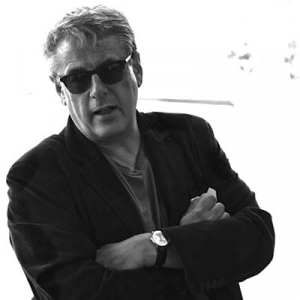Biography
Markus Imboden, born on October 17, 1955, in Interlaken, Switzerland, is among the most distinguished directors in the German-speaking world. After studying German and History at the University of Zurich, he gained his first practical experience as an assistant director at the Schauspielhaus Zürich and the Schauspiel Köln, where he worked from 1981 to 1986. Since then, he has worked independently as a film director and screenwriter.
Imboden made his feature film debut in 1986 with the tragicomedy "Moviestar", which laid the foundation for a versatile career. In the years that followed, he directed numerous television productions, including episodes of "Polizeiruf 110", "Bella Block", "Tatort", "Ein starkes Team", and "Die Cleveren". His 1996 comedy "Katzendiebe", one of the most successful Swiss films of the 1990s, established his reputation in the genre.
In Germany, Imboden became widely known through films such as "Frau Rettich, die Czerni und ich" ("Mrs. Rettich, Czerny and Me," 1998), "Komiker" ("Comedian," 2000), "Heidi" (2001), and "Hunger auf Leben" (2004), the latter portraying the life of East German writer Brigitte Reimann. "Hunger auf Leben" also marked another collaboration with actress Martina Gedeck, with whom he had already worked on "Bella Block – Tod eines Mädchens" (1997) and "Frau Rettich, die Czerni und ich". Gedeck became his partner in 2005 and later his wife. Together, they have continued to collaborate on several projects characterized by psychological precision and emotional intensity, including the two-part television film "Auf ewig und einen Tag" (2006), which explored the psychological aftermath of the 9/11 attacks.
Imboden's thriller "Mörder auf Amrum" (2009), about a small-town police officer who protects a witness from a Russian mafia hit squad, earned him both the Hamburg Crime Award and the prestigious Grimme Prize. That same year, he made a brief cameo in Fatih Akin's "Soul Kitchen", appearing as the father of Nadine, dining in a restaurant scene with his on-screen wife.
Two years later, his feature "Der Verdingbub" ("The Foster Boy," 2011) brought a dark chapter of Swiss history to the screen — the long-suppressed practice of 'Verdingung,' in which orphans and children from poor backgrounds were forcibly 'auctioned off' by authorities to work on farms, often under abusive conditions. The film became one of Switzerland's most-watched of the decade and received international acclaim.
His 2013 film "Am Hang", based on Markus Werner's novel of the same name, marked his eighth collaboration with Martina Gedeck, who starred alongside Henry Hübchen and Max Simonischek. The intense chamber piece unfolds between two men who meet by chance in a hotel restaurant in Merano and, without realizing it, talk about the same woman. The film delves into themes of love, jealousy, masculinity, and self-deception, posing the question of whether we can ever truly know another person. Unlike the open-ended novel, Imboden's adaptation builds toward a psychologically charged crime narrative.
In the following years, Imboden solidified his reputation as a master of the crime genre. He directed "Mord in Aschberg" (2014), followed by "Tatort – Am Ende geht man nackt" (2017), about an arson attack on a refugee shelter in Bamberg, and "Tatort – Zeit der Frösche" (2018), featuring Heike Makatsch as Inspector Ellen Berlinger. Subsequent works include "Stralsund – Schattenlinien" (2019), set against the backdrop of a former East German children's home, and "Das Gesetz sind wir" (2019), which blended dark humor with social critique and won Best Film at the Deutsches Krimifestival (German Crime Festival) in Wiesbaden.
His more recent films also revolve around psychological and criminal themes. "Danowski – Blutapfel" (2019), based on Till Raether's novels, stands out for its atmospheric depth and psychological tension. "Ein Mädchen wird vermisst" (2021) and "Wo ist meine Schwester?" (2023) both draw inspiration from real missing-person cases, exploring the emotional toll on families and the complexity of police investigations. With "Erzgebirgskrimi – Mord auf dem Jakobsweg" (2024), Imboden combines traditional crime storytelling with regional folklore and striking landscape imagery. Since 2020, he has also directed several episodes of the popular TV series "Daheim in den Bergen" and "Nord bei Nordwest", both audience favorites with consistently high viewership.
In 2025, after many years devoted to film and television, Imboden returned to the stage to direct the Christmas comedy "Der Messias" for the Zürich theater Weisser Wind.
Beyond his directing career, Imboden has been deeply involved in nurturing new talent. From 2012 to 2018, he headed the Master's program in Film at the Zurich University of the Arts (ZHdK). He has also served as a guest lecturer and jury member at various film festivals. In 2013, he led a Master Class at the Zurich Film Festival, offering insights into his creative process and experience as a director. In 2018, he received the Berner Oberland Cultural Award in recognition of his body of work.
Markus Imboden lives in Berlin and Zurich with his wife, actress Martina Gedeck.
